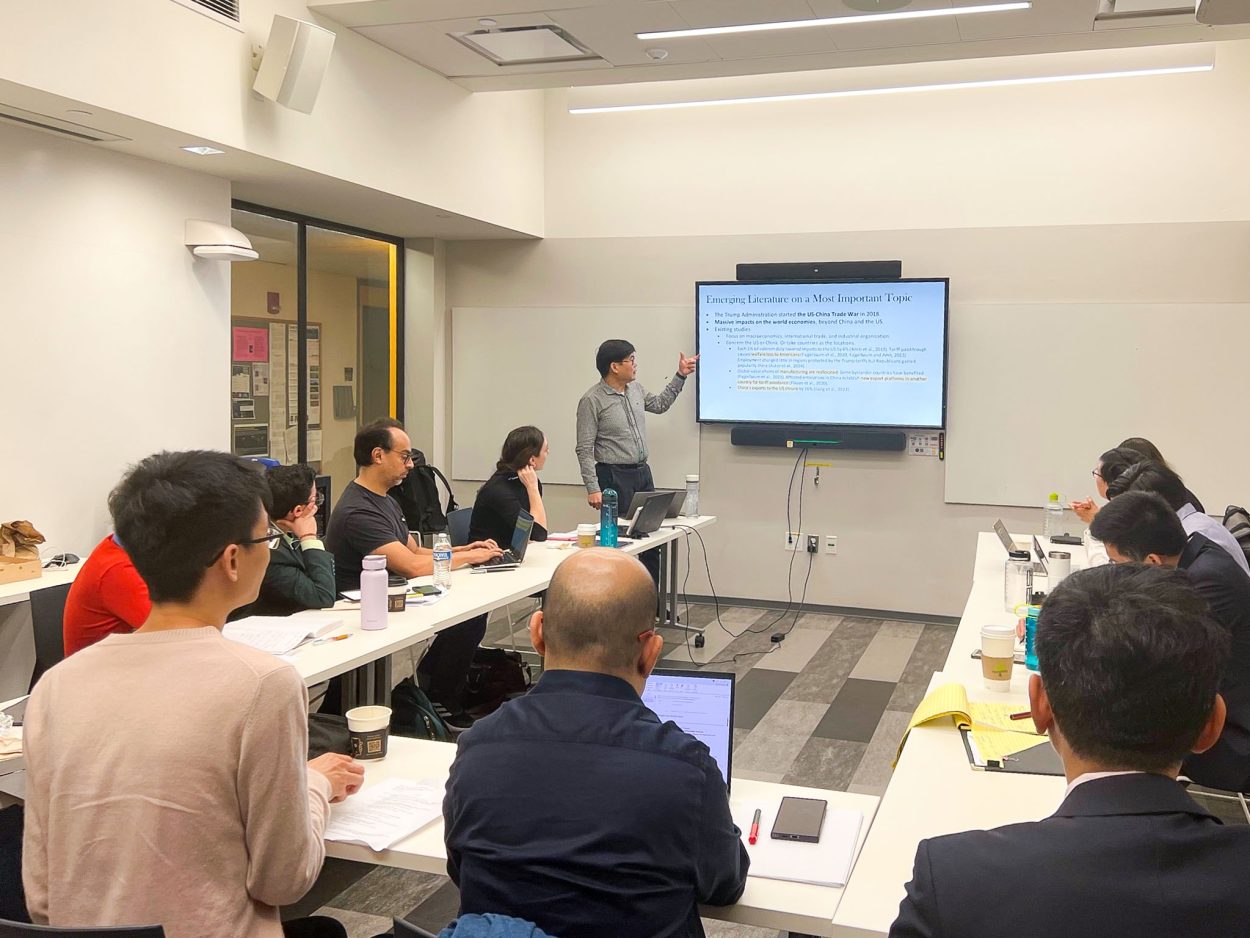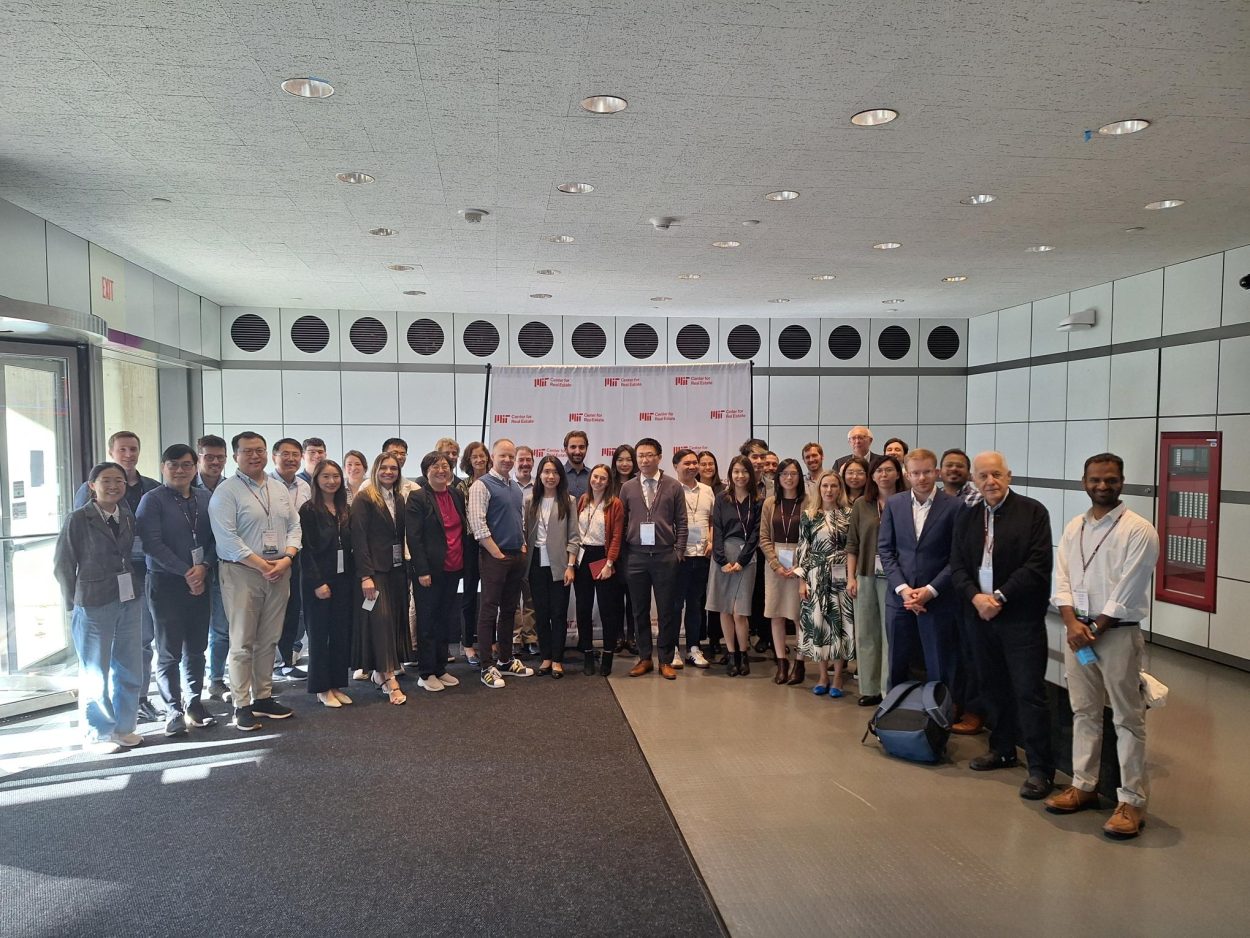
See original post | Department of Urban Studies and Planning
“Humanity must find affordable, equitable ways to bring every sector of the global economy to net-zero carbon emissions no later than 2050. We must go as far as we can, as fast as we can, with the tools and methods we have now.”
Former MIT President L. Rafael Reif
CRE faculty accepted into the first cohort of MIT’s Fast Forward Faculty Fund Grant Program
“Humanity must find affordable, equitable ways to bring every sector of the global economy to net-zero carbon emissions no later than 2050. We must go as far as we can, as fast as we can, with the tools and methods we have now,” wrote former MIT President L. Rafael Reif in a letter to the community situating the Institute’s role in addressing the climate crisis. The letter introduced Fast Forward: MIT’s Climate Action Plan for the Decade, a broad array of new initiatives and significant expansions of existing programs, to address the needs for new technologies, new policies, and new kinds of outreach to bring the Institute’s expertise to bear on this critical global issue.
The inaugural cohort of Fast Forward Faculty Fund Grant Program (F^4), one of the new initiatives created under Fast Forward, seeks to strengthen Institute-wide climate and sustainability connections, bringing together members of the MIT faculty and doctoral student community to share, collaborate, and innovate new opportunities for cross-disciplinary collaboration. DUSP’s Jason Jackson and Siqi Zheng will join four other MIT faculty as members selected for the first F^4 cohort. Jackson and Zheng will also be joined by DUSP doctoral students Chen Chu and Mrinalini Penumaka and Institute for Data, Systems, and Society MS student, Johnattan Ontiveros.
Jackson’s project, Political Economy of the Climate Crisis: Institutions, Power and Global Governance, takes a political economy approach to climate change, enabling an explicit focus on institutions, power and global governance. It centers on three interrelated dimensions of the climate crisis: the political governance challenge of mobilizing climate action and designing new institutional mechanisms to address the global and intergenerational distributional aspects of climate change; the economic challenge of devising new institutional approaches to equitably finance climate action beyond the currently dominant economic rationale; and the cultural challenge – and opportunity – of empowering an adaptive socio-cultural ecology through traditional knowledge and local-level social networks to achieve environmental resilience. The project is organized through the Political Economy Lab and will include engagement with partners in the Caribbean, India and elsewhere in the Global South that are at the leading edge of innovative – but often underrecognized and underappreciated – Global South initiatives on climate justice.
Zheng’s Climate Crisis and Real Estate: Science-based Mitigation and Adaptation Strategies will employ a data-driven empirical approach to unpack the behavioral and economic mechanisms in the climate change and real estate dynamics, to provide scientific evidence and support for designing efficient and equitable market incentives, technology adoption solutions, as well as federal and local policies that are most effective at transforming this traditional industry. As one of the biggest contributors to global warming and also exposure to location-based climate risks, the real estate industry is at the critical moment to make itself a catalyst for the rapid mobilization of a global transition to a greener society. A dimension of this project will investigate the role of institutional investors (e.g., pension funds; insurance firms; banks) in engaging real estate owners and operators on the mitigation and adaptation investments in real assets (infrastructure and buildings). Another dimension will explore the barriers and incentives for the adoption of building decarbonization technologies on both supply and demand sides, with the goal of accelerating building decarbonization globally. The project is organized through the Center for Real Estate and Sustainable Urbanization Lab, and will include collaborations with MIT Sloan’s Roberto Rigobon and Chris Knittel.
Jackson is an Associate Professor in Political Economy and Urban Planning. His research focuses on the role of institutions, ideas and moral beliefs in shaping state-market relationships. His research team includes Chu, who is interested in how to design, mobilize and finance climate actions, and Penumaka, whose work centers on climate change, urban poverty, and rural-to-urban migration with a cross-cutting focus on gender, access to public services, and questions of justice and equity.
Zheng, Professor of Urban and Real Estate Sustainability, specializes in urban and environmental economics and policy, including sustainable urbanization, sustainable real estate, and urbanization in emerging economies. Her research team includes Ontiveros who focuses on estimating the cost of electrification for home and building owners.



